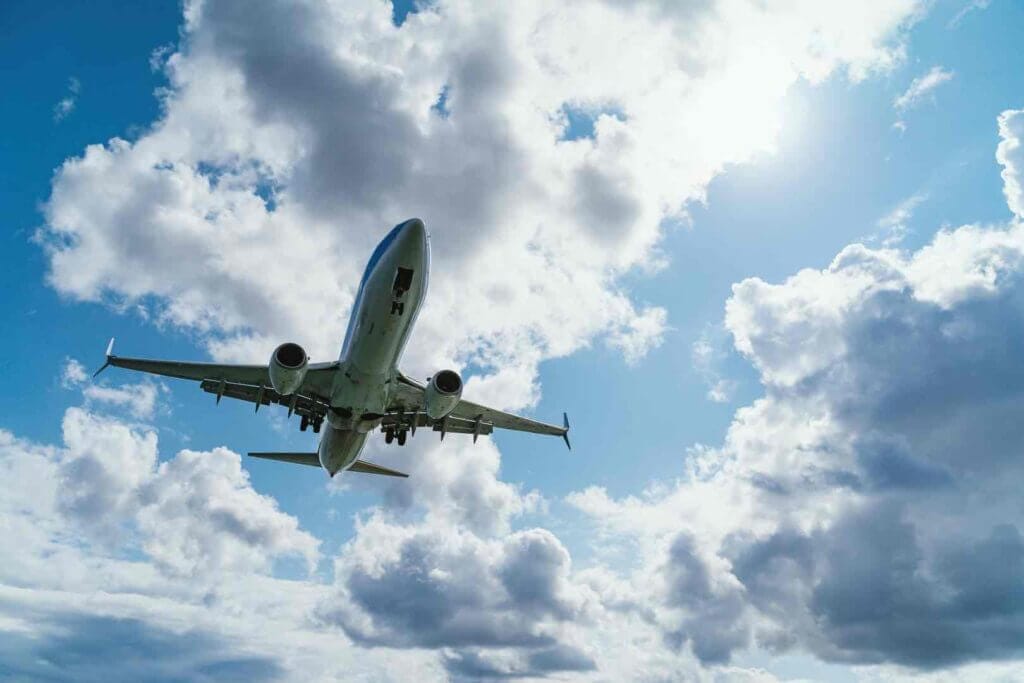Table of Contents
ToggleImagine this: you board a sleek jet, settle into your seat, and inhale that familiar scent of anticipation. But this time, it’s different. The engines roar to life, powered partially by fuel made from plants, recycled waste, or even algae! That’s the promise of biofuels – a cleaner, greener way to conquer the skies. Let’s explore this exciting world of sustainable aviation.
Be sure to take a look at our other guides to Sustainable Travel, such as The Rise of “Flygskam”: Is Flight Shame Changing Travel?.

Key Takeaways
- Air travel has a significant environmental impact, but the industry is committed to change.
- Biofuels offer a way to reduce aviation emissions using renewable resources.
- Airlines are already adopting biofuels, proving their feasibility in real-world applications.
- Challenges like cost and scaling up production need to be addressed for biofuels to become widespread.
- Sustainable aviation will likely require a combination of solutions, with biofuels playing a major role.
The Environmental Toll of Air Travel
Understanding Aviation’s Carbon Footprint
We love to jet set, but air travel comes with a hidden cost: carbon emissions. Planes release greenhouse gases directly into the atmosphere, contributing to climate change. It’s a tricky problem, as air travel is increasingly vital for global connection and trade.
The Need for Sustainable Solutions
The aviation industry knows it’s gotta change. International targets by International Energy Agency aim for net-zero emissions by 2050. But electric planes for long-haul flights are still a distant dream. That’s where biofuels swoop in as a potential near-term solution.

Biofuels: A Game-Changer?
Forget fossil fuels! Biofuels come from renewable sources like plants, agricultural waste, used cooking oil, or even algae. They’re chemically similar to traditional jet fuel, so they can work in existing aircraft engines (often blended with regular fuel).
Types of Biofuels for Aviation
Get ready for some science-y names! HEFA fuels (made from oils and fats), algae-based fuels, and other technologies are all in the running. Each has its pros and cons regarding how easy they are to produce and how big their carbon savings are.
FREE Travel Planner
Real-World Success Stories
Airlines Leading the Charge
It’s not just talk! Airlines like United, KLM, and Qantas are already flying with biofuel blends. In-fact Virgin Atlantic have already completed a full flight. These pioneering flights prove it’s not just a pipe dream, but a real-world solution taking off. Find the full-list here.
Global Initiatives and Partnerships
Governments, researchers, and the private sector are joining forces (think Avengers, but for sustainable fuels!). Projects around the world are working to make biofuels cheaper and more widely available.
According to IATA, biofuels could reduce aviation emissions by up to 80% compared to traditional jet fuel (IATA website)
Related article: Eco-Friendly Travel: Guilt-Free Globe-Trotting
Challenges and Opportunities

Scaling Up Production and Distribution
Right now, biofuels are more expensive and less abundant than fossil fuels. We need to massively ramp up production and create efficient supply chains to make them a mainstream option.
Public Perception and Policy
Not everyone is immediately sold on biofuels. Some worry about competition with food crops or potential land-use issues. Clear communication and strong government policies are crucial to build trust and support.
Subscribe to Northern Wanderers
The Future of Flight: A Biofuel-Powered World

Envisioning Sustainable Air Travel
Imagine a future where guilt-free globetrotting is the norm. Biofuels, alongside other innovations like electric aircraft for shorter hauls, could reshape the way we fly.
Your Role as a Responsible Traveller
While technology advances, you can do your part! Choose airlines prioritising sustainability, consider carbon offsets, and be mindful of your travel footprint.
Want to learn more
Sustainable Aviation Fuels User Group (SAFUG): www.safug.org/ – Details about specific biofuel projects, resources for understanding the technology and its potential.

Frequently Asked Questions (FAQs)
Do biofuels create other pollution problems?
It depends on the specific type of biofuel. Some have significantly lower emissions throughout their lifecycle compared to fossil fuels, while others require careful management to ensure their production is sustainable.
Where can I learn more about specific biofuel projects or airlines using them?
Websites like the International Air Transport Association (IATA) and the Sustainable Aviation Fuel Users Group (SAFUG) are excellent resources for up-to-date information.
Are biofuels 100% safe for planes?
Yes! They undergo rigorous testing and must meet the same standards as traditional jet fuel.
Will flights become more expensive with biofuels?
The goal is to ultimately make them cost-competitive, but early on, there might be a slight price difference.
Can biofuels completely replace fossil fuels in aviation?
Potentially, but a mix of solutions will likely be needed, including fuel efficiency improvements and possibly even hydrogen-powered planes.
Final Thoughts
Biofuels are no silver bullet, but they hold tremendous promise in making air travel less damaging to our planet. This technology is still young, with challenges to overcome. However, the momentum and innovation give us reason for optimism.
So, what do you think? Is the future of flight truly green? Are you excited about the potential of biofuels, or do you have lingering concerns? Share your thoughts in the comments below – let’s keep the conversation going!
Related articles: Get inspired to travel green, Eco-friendly travel: guilt free travel
Recommended websites and sources: Sustainable tourism wiki page
Sustainable Travel
Save this post (pin it)
Share this post
More Articles
Note: This post contains affiliate links. When you make a purchase using one of these affiliate links, we get paid a small commission at no extra cost to you.

